‘The Church in the Public Sphere – a perspective from Ireland’
Background
Archbishop Eamon Martin will deliver a lecture this evening in the University of East Anglia in Norwich, as part of The Newman Lectures, on the theme ‘The Church in the Public Sphere – a perspective from Ireland’.
The Newman Lectures are a series of talks on the subject of Catholicism in history that take place each Spring semester in the University of East Anglia. Hosted by the Interdisciplinary Institute for the Humanities the series is also sponsored by the Roman Catholic Diocese of East Anglia. The theme of the 2017 Newman Lectures series is ‘Church, State and Culture’.
Archbishop Eamon’s speaking notes for this evening’s lecture follow.
‘The Church in the Public Sphere – a perspective from Ireland’
Introduction: Newman, Faith and Reason
In early May 1856, John Henry Newman travelled to Dublin for the opening of the beautiful University Church on Saint Stephen’s Green. The Blessed Patron of your lecture series wanted to give thanks to Mary, Seat of Wisdom, for guiding the endeavours which had dominated much of his thought and efforts over the previous five years. It was in April 1851 that Dr Paul Cullen, my distinguished predecessor as Archbishop of Armagh (and soon to become Archbishop of Dublin), had invited Newman to assist with the foundation of the Catholic University of Ireland. Despite troubles at home, Newman brought all of his energy and intellectual genius to bear on the project, including the delivery of a remarkable series of discourses and sermons on “the idea of a University”. These explored, in particular, the interaction between faith and reason. His good friend and fellow Oratorian, Joseph Gordon, wisely observed at the time that, although Newman was addressing a particular audience in Dublin, he was “writing for the world and for posterity” (1).
In a preface to the Discourses, Newman explained his understanding of a University as ‘a place of teaching universal knowledge’. A University is there to cultivate the mind and to foster an intellect that is comprehensive and versatile enough to be able to instinctively evaluate ‘things as they pass before us’ (2). A liberal education for Newman, was not just about politeness and propriety in society, but about forming the intellect to have a ‘connected view or grasp of things’ rather than simply be dazzled by all that is new and different. Newman observed, “What is more common than the sight of grown men, talking on political or moral or religious subjects, in that offhand, idle way, which we signify by the word unreal? ‘That they simply do not know what they are talking about’ is the spontaneous silent remark of any man of sense who hears them” (3).
Newman goes on to explain in his First Discourse that the Philosophy of Education is founded on truths in the natural order, and its principles are attainable by all:
‘They do not come simply of theology; they imply no supernatural discernment; they have no special connexion with Revelation; they almost arise out of the nature of the case; they are dictated even by human prudence and wisdom, though a divine illumination be absent, and they are recognised by common sense…’ (4)
Any reflection on the Church’s mission to bear witness to the truth in the public sphere would do well to keep in mind Newman’s confidence in the unity of faith and reason. This is a conviction that was shared by Pope Saint John Paul II, himself an admirer of Newman’s thought. In the opening lines of his encyclical letter Fides et Ratio, he wrote:
‘Faith and reason are like two wings on which the human spirit rises to the contemplation of truth; and God has placed in the human heart a desire to know the truth—in a word, to know himself—so that, by knowing and loving God, men and women may also come to the fullness of truth about themselves’ (5).
Incidentally, Newman’s University Church was recently given a new lease of life by Archbishop Diarmuid Martin of Dublin who has invited the University of Notre Dame to establish there a Centre of Faith and Reason. The Centre will endeavour to create a space to affirm and celebrate the engagement of faith and culture. It also aims to build and support a community of informed and inquiring believers who are able, as its mission statement puts it: “to seek the truth with confidence and vigour, to speak the truth in love, and to integrate faith into their worldview, their work, and their engagement with culture”(6)
Faithful Witnesses, Faithful Citizens
When Pope Saint John Paul II visited Ireland, back in 1979, he called on the lay faithful of the Church in Ireland to engage actively in the public sphere. Borrowing from a theme in the Second Vatican Council document, Lumen Gentium , he said: ‘The great forces which shape the world – politics, the mass media, science, technology, culture, education, industry and work – are precisely the areas where lay people are especially competent to exercise their mission. If these forces are guided by people who are true disciples of Christ, and who are, at the same time, fully competent in the relevant secular knowledge and skill, then indeed will the world be transformed from within by Christ’s redeeming power’(7).
Pope Benedict XVI repeated this call in Deus Caritas Est, when he said:
‘The direct duty to work for a just ordering of society… is proper to the lay faithful’ (8).
Typically, Pope Francis has couched this important message in a missionary key:
‘An authentic faith – which is never comfortable or completely personal – always involves a deep desire to change the world, to transmit values, to leave this earth somehow better than we found it. We love this magnificent planet on which God has put us, and we love the human family which dwells here, with all its tragedies and struggles, its hopes and aspirations, its strengths and weaknesses. The earth is our common home and all of us are brothers and sisters. If indeed “the just ordering of society and of the state is a central responsibility of politics,” the Church, “cannot and must not remain on the side-lines in the fight for justice.” (9)
I’ve been asked to speak about The Church in the Public Sphere, and I’ve assumed that, in inviting me, you had in mind the Catholic Church. I am very conscious, however, that whilst each of us has a distinctive contribution to make, a lot of what I have to say here is applicable to other churches and faiths, and to people of goodwill everywhere.
Much has been spoken about the role of the Church ‘in the public square’, referencing mainly the discussion of religion, morality, politics and law. To speak about the engagement of Church in the ‘public sphere’ is to acknowledge the broader spaces where ideas are developed, shared and tested. The media and entertainment world, for example, has an obvious claim on the attention of people of faith, and, if you’ll allow a ‘virtual’ space, then social media has a major contribution to make. Important discussion also takes place in the boardrooms of business and industry. The arts, music and sport clearly influence the public agenda. From all of these emerge messages which shape our understanding of the truth and how we live our lives. So also, of course, does education, through academic research and discourse. This means that if the voice of the Church is to effectively enter the public sphere, then people of faith, both as faithful witnesses to the Gospel and as faithful citizens must inhabit and contribute to all of these worlds and discussions, and indeed, to anywhere people meet to share opinions and ideas – the pub, the hairdressers, the dinner party and the staff coffee room.
‘Something else is needed’ – the message we bring
But what message do we bring with us, as people of faith, into the public sphere? The Council fathers pointed out the duty of the Church to scrutinise the signs of the times and interpret them in the light of the Gospel. The great Pastoral Constitution on the Church in the Modern World, Gaudium et Spes, famously puts it:
‘The joys and the hopes, the griefs and the anxieties of the (people) men of this age, especially those who are poor or in any way afflicted, these are the joys and hopes, the griefs and anxieties of the followers of Christ.’ (10)
Later, Gaudium et Spes explains:
“The future of humanity rests on those who are capable of handing on to the coming generations reasons for living and hoping.” (11)
Our participation in the public sphere therefore draws from transcendent ideas of truth, beauty and goodness, from universal truths and values, and from an understanding of the human person that is rooted in the natural law and which strives for the common good. Ultimately everything we say is founded on the Gospel of Jesus Christ, our Risen Lord, who calls people to experience a personal encounter with the joy of God’s love.
As Pope Saint John Paul once said, we are ‘at the service of love’. We enter the public sphere with his words: ‘Do not be afraid, the Gospel is not against you, but for you’. We try to convince others that , as Pope Benedict put it, ‘if we let Christ into our lives, we lose nothing, nothing, absolutely nothing of what makes life free, beautiful and great’. We are not there to impose, but to invite; we are not there to simply oppose, but to offer the gift and message of salvation. The Council’s declaration on religious freedom, Dignitatis Humanae puts it so profoundly:
‘The truth cannot impose itself except by virtue of its own truth, as it makes its entrance into the mind at once quietly and with power’. (12)
I was only eighteen when Pope John Paul II visited Ireland. In Galway he spoke to young people of Ireland about the temptation as you get older to leave religion and your faith behind, to think that religion cramps your style and hampers your future, that with all the amazing social and scientific progress the world has to offer, you don’t need God; you can organize your own life. But then he called out to the thousands of young people present: ‘Something else is needed! Something that you will find only in Christ!’ Pope Benedict reiterated those sentiments in his 2010 Pastoral Letter to the Catholics of Ireland when he addressed young people:
‘He alone [Only Jesus] can satisfy your deepest longings and give your lives their fullest meaning’. (13)
Inspired in this way towards, and from, a personal encounter and relationship with Christ, we enter the public square with the conviction that ‘something else is needed’ and not simply to win arguments through the clever use of reasoning and debate. When we speak, we draw upon both reason and faith and upon an integral vision of the dignity and vocation of the human person linked to the common good. We seek to present in public discourse ‘a consistent ethic of life’, based on natural law, which includes for example, our teaching about the sacredness of all human life and the dignity of the person, about the centrality of the family, about solidarity and the need for a fair distribution of goods in the world. Our vision is of a society marked by a culture of peace, justice and care for all, especially the most vulnerable.
Supporting the Common Good
Central to our message in the public sphere is our desire to support the Common Good. Catholic thinking about the concept of ‘the common good’ springs from a description in Dignitatis Humanae, echoing and drawing on Mater et Magistra and Pacem in Terris, and which the Catechism (§ 1906) renders as ‘the sum total of social conditions which allow people, either as groups or as individuals, to reach their fulfilment more fully and more easily’. The Catholic Bishops Conference of England and Wales has elaborated helpfully on this in the Pastoral Message: Choosing the Common Good, published in 2010, as have the Irish Bishops in their paper: From Crisis to Hope: Working to Achieve the Common Good (2011).
When Bishops issue statements or comments on specific matters in the public square, they are exercising their responsibility to teach and lead the faithful. From the standpoint of promoting the Common Good, and from the conviction that our faith in Jesus Christ has consequences for every aspect of our lives, the Bishops encourage all Catholics to engage constructively in conversations and discussions about a wide range of social and moral issues, thereby bringing the light of faith to bear on some of the most important topics of the day. The scene is somewhat different between the North and the Republic of Ireland, but most of what I have so say applies to the island as a whole.
In Ireland (and indeed more widely) the Bishops are often accused of ‘moralising’ and of being overly interested only in areas of sexual morality. A glance, however, at the breadth of recent interventions makes it clear that the Bishops seek to bring the Joy of the Gospel to bear on a whole range of issues. Recent interventions of the bishops, North and South in Ireland, have included comments and statements on:
- homelessness, childhood poverty, welfare reform and the widening gap between rich and poor;
- creating a constructive and inclusive political culture, particularly in Northern Ireland, that will sustain peace and give hope to all in our society for a better future;
- upholding the fundamental right to life from conception to natural death;
- protecting and supporting family and marriage and in particular the natural institution of marriage between one man and one woman as the fundamental building block of society;
- the right of religious organisations to provide services in a manner consistent with their religious ethos and beliefs;
- the right of parents to have Catholic schools as part of a diverse system of educational provision, based on parental choice;
- the persecution of Christians and other minority groups across the world;
- addressing human trafficking in Ireland, north and south, and helping to improve services for refugees and asylum seekers;
- ensuring proper care and respect for the natural environment.
Statements such as these become particularly important at the time of elections or referendums. Church leaders consistently urge voters to engage in the democratic process. Most recently, before the last Northern Ireland Assembly elections, the Northern Catholic Bishops quoted Pope Francis’ words: ‘None of us can say ‘I have nothing to do with this, they govern…’ No, I am responsible for their governance, and I have to do the best so that they govern well, and I have to do my best by participating in politics according to my ability….I cannot wash my hands.” (14)
Although the bishops in their teaching role will often reiterate the duty to the Common Good that is at the heart of Catholic Social Teaching, they are at pains to emphasise that they do not wish to interfere in the legitimate autonomy of politics, or to support one political party or candidate over another. This is a matter of conscience for each voter. All people of goodwill are encouraged to consider the policies of candidates, asking: ‘How effectively does a particular candidate’s policies strengthen and support the full human dignity of all members of our society?’
A Changed Context
(a) Decline in Practice and Secularisation
The context in which the Church enters the public sphere has shifted dramatically in recent decades. Back in 1979, Pope Saint John Paul II said at Knock: “Every generation, with its own mentality and characteristics, is like a new continent to be won for Christ. The Church must constantly look for new ways that will enable her to understand more profoundly and to carry out with renewed vigour the mission received from her Founder.” (15)
Almost forty years later, it is clear that the Church is speaking to a whole new generation in the public sphere. The role of religion and faith in Irish society, north and south, has been hugely impacted by secularisation and is evidenced by a steady decline in Church attendance and in vocations to the priesthood and religious life. What began as a gradual drift of people away from Mass and the Sacraments became a stronger current which has carried many away from religion and from God altogether. Like other parts of Europe and the Western world, more people in Ireland are living their lives without reference to God or to religious belief.
Following the papal visit to Ireland in 1979, the Irish Bishops Pastoral Letter ‘Handing on the Faith in the Home’ sketched out a pastoral strategy, based upon the three interdependent pillars of parish, home and Catholic school upon which to sustain and consolidate the practice of the faith. All three pillars have been rocked by the wave of secularisation which has swept across Ireland in the ensuing three decades.
The Maynooth theologian, Patrick Hannon, has reflected upon Ireland’s experience of secularisation in light of Charles Taylor’s A Secular Age (2007). Taylor identifies three phases in the process of secularisation. He associates what he calls Secularity One with the retreat of religion from the public space, the gradual separation of church and state; Secularity Two is ‘the falling off of religious belief and practice, in people turning away from God, and no longer going to Church’; Secularity Three identifies ‘a move from a society where belief in God is unchallenged and unproblematic, to one in which it is understood to be one option among others, and frequently not the easiest to embrace’. Hannon concludes:
‘The Republic’s embrace of Secularity One is enshrined in Bunreacht na hÉireann [the Constitution of Ireland], and the decline in religious practice means that Secularity Two has taken hold. But the novelty that faces Christian leaders in Ireland is what Taylor says of Secularity Three: we’re in a time when unbelief is a live option, Christian faith is one option among others. We’ve connected with Secularity Three, and it has nourished Secularity Two, and is sure to continue to do so (16).
The publication of Ireland’s most recent Census (2016) figures confirms Hannon’s observation, in Taylor’s terms, that we have moved, or at least are rapidly moving, from a society in which it was virtually impossible not to believe in God, to one in which faith is one human possibility among others. In five years the number of people identifying as Catholic has declined by 5% to 78% of the population and there are increased numbers of people who profess no religious belief.
I am conscious that I am speaking in an English context where 78% of 4.76 million citizens self-declaring as Catholic might be considered a remarkable vote of confidence in the Catholic Church! Commentary in Ireland, however, has focussed on the decline of the Church and the consequent calls from some quarters for a redoubling of efforts to remove the Church’s perceived remaining influence in schools, healthcare and public policy making. Such a narrative clearly challenges the Church to find new ways of presenting the Joy of the Gospel, and for example the Gospel of the Family, in the public sphere.
(b) Damaged Credibility
Of course, the Catholic Church in Ireland has seen great damage to its credibility on account of the child abuse scandals and other shameful episodes of the past. Many people feel they can no longer trust our message because they have been hurt and betrayed by their experience of Church. The sins and crimes of sexual abuse in the Church have not only had tragic consequences in the lives of victims and their families, but have also, as Pope Benedict XVI put it, ‘obscured the light of the gospel’. In short, communion has been damaged and our witness has been weakened.
When we attempt as Church to speak in the public sphere about the right to life of the unborn, some are quick to point to the scandals and to shameful stories of the past. Decades of service by countless religious sisters and priests to the education and healthcare of the people of Ireland and all over the world is almost obliterated by a revised and narrow narrative that religious ethos cannot be good for democracy and stands against the progress and flourishing of society and the rights of citizens.
It has been suggested that what the Church in Ireland is experiencing today may be partly a reaction to what was perceived as paternalism or even authoritarianism on the part of Church in the past. There is a tendency in some public discussion, to give the impression that when something is related to faith (e.g. a faith-school, faith hospital, or faith anything), that underlying it are matters of some special revelation, unconnected with reason. In fact every Catholic position on concrete morals is argued from reason even when there exists a biblical warrant for that position. It is simply not true that the Catholic Church has a desire to create a theocracy in Ireland, north or south. However the Church does expect that in a true pluralist democracy or republic, religion and faith will continue to have an important part to play in the national conversation.
This can engender in the Church a defensive reaction to criticisms – sometimes by denial, claiming unfairness, even conspiracy – rather than being thankful that the lid has been lifted on a terrible and shameful chapter of our history and at last giving a voice to those who for years have been carrying a lonely trauma. I am convinced, however, that the failures of the past must not be allowed to define us, but should instead help all of us in the public sphere learn lessons for the present about where Church and society might today be similarly marginalising the poor, stigmatising the unwanted or failing to protect the most vulnerable.
Bishop Donal Murray cautions us against always feeling the person who disagrees with us is necessarily hostile. “Civilised discussion should begin from the presumption that all concerned are honestly seeking the truth…. We should remain open to recognising the elements of truth that are present in the convictions of someone we disagree with…Honest convictions are the fruit of a search for truth and for God, the search in which those on both sides of the argument are involved” (17)
(c) The challenge of Secularism
It is important to acknowledge that the process of ‘secularisation’ which leads to what the Church recognises as the ‘rightful autonomy of earthly affairs’, is very different from ‘secularism’, which at times may quite aggressively seek to exclude the voice of faith and religion altogether from the public square.
Archbishop Rowan Williams has cautioned against ‘programmatic secularism’, a kind of ‘exclusive public orthodoxy’, in which:
‘any and every public manifestation of any particular religious allegiance is to be ironed out so that everyone may share a clear public loyalty to the state, unclouded by private convictions, and any sign of such private convictions are rigorously banned from public space’ (18).
The suggestion here is that faith is a kind of private preference which cannot stand alongside a ‘supposedly neutral public order of rational persons’.
Since Saint Paul first stepped into the agora at Athens, many have argued that the transcendent moral norms presented by believing Christians have no place in the public discourse. There is little tolerance nowadays for the idea of absolute moral truths or for stable moral reference points – something which is intrinsic to the content of Christian interventions in the public square.
Archbishop Rowan Williams prefers to see the Church as part of the ‘community of communities’ that is the state. As a significant community in the public sphere, the Church can have a key role to play in reminding us of our story, our soul. An example of such an intervention was that of the French Bishops to the residents of France last October, pointing to the question of identity as one that deeply affects French society:
‘Many of our fellow citizens, some out of confusion, wonder: who am I really? What do I believe in? What are the values which made me and matter to me? Where do they come from?’ (19)
What is interesting about the French bishops’ statement is the nature and tone of their presence in the public sphere. They speak as people of faith, but also as fellow French citizens, pastorally accompanying their troubled people with empathy and concern. The Bishops caution against any aspiring to be a ‘“Church of the pure”, a counterculture removed from society, posing as a judge from above’. They remind us that the Church has always walked:
‘in pair with reason, and recognises “seeds of the Word” in culture, which was defined by Pope John Paul II as that through which “man lives a really human life” (UNESCO, June 2nd 1980)’ (19).
It is important for us to learn new ways of presenting our sincerely held perspectives alongside others of other faiths and none, and to encourage conversations at a national level on significant issues and values. An example of a contribution to the public conversation in Ireland is the positive initiative of President Michael D Higgins in recent years to encourage a national conversation about ethics. The initiative received important contributions from Third Level institutions and many others in civil society and the community sector.
The Report of the President’s ‘Ethics Initiative’, issued in February 2016 identified that “there needs to be a renewed focus on the ‘common good’. Contemporary Irish society, like most modern societies, is highly individualised, plural and diverse, without a single moral authority and single set of values that are widely held. In this new context it cannot be assumed that a common morality or a common set of shared values exists…. What Irish society needs is a debate on what ethical values and principles we want to uphold and strengthen; we need to have a conversation(s) on our understanding of what constitutes a ‘good life’ or a ‘flourishing life’ not just for individuals but also for communities” (20)
The engagement of people of faith together with all people of good will in such a conversation is to be encouraged and welcomed. The Catholic Church can draw upon its rich tradition of social teaching in such a process. With faith and conviction we will sometimes bring uncomfortable questions into the public sphere e.g. about the impact of economic policies on the most vulnerable, or to point out the contradictions of populism, all the while being careful not to become too sensitive to criticism or always claiming to be offended.
There is no question that the practice of faith in Ireland has been hugely exposed to, and challenged by, the prevailing culture. There appears, however, to exist little appetite at present for any substantial critique of culture by people of faith, particularly if it presents any serious questioning of the almost compulsory consensus on controversial issues. This leads further to a tendency amongst some in Ireland towards secularism, and a caricaturing of the Church and people of faith as being “unmodern”, “authoritarian”, “hypocritical”, “bigoted”, “closed” to progress and personal rights and autonomy. At times we need to have a broad back in the public square, and, particularly so, on social media where people of faith often have to endure insult or ridicule, or even personal attack simply for being present in the public square at all.
Conclusion – Towards a Culture and Language of Engagement’
How precisely the Church participates in the public sphere can cause a degree of contention within Church circles. Some argue that the Church’s participation in the modern public sphere can easily lead to assimilation to the broader culture, a ‘throwing in the towel’ so-to-speak, and eventual compromising of cherished values and positions. The Boston College theologian, Cathleen Kaveny, has grappled with such tensions between so-called ‘progressives’ and ‘conservatives’ in the United States since the Second Vatican Council. She comments on the divergence between a ‘culture of openness’ and a ‘culture of identity’.
The ‘culture of openness’ takes its inspiration from the aggiornamento and ‘openness to the world’ which marked the Council generally and which initially caught the imagination of people inside and outside the Church. But some have feared that this culture of ‘openness to the world’ which is especially expressed in Gaudium et Spes, has led to a dilution of Christian – especially Catholic – beliefs, and a too easy compromise with ‘liberal’ values and ways. Hence a turn to a ‘culture of identity’, emphasising the importance of what is distinctive about Catholicism, rather than what Catholics have in common with all people of good will.
In the context of Ireland, I find myself curious to explore further Kaveny’s third way which she calls ‘the culture of engagement’. She suggests that:
‘It is impossible to insulate a religious tradition from the intellectual and experiential currents of the culture in which believers are living out their faith commitments’ (21).
Hence, two-way, critical interaction and conversations need to take place between religious traditions and the broader culture, including constructive critiques of social, political, legal, and economic practices.
Our arguments in these discussions must aim to balance charity and truth. At the SXSW Digital Technology Conference in March, Bishop Paul Tighe from the Pontifical Council for Culture characterised the presence of the Church in the ‘digital continent’ as being one of ‘compassionate disruption’. Pope Francis emphasises to us the need to ‘go out of ourselves’ to the ‘edges of our existence’ where we meet the poor, the forgotten, the disillusioned, to draw near and guide the weakest of our neighbours who are experiencing a wounded or lost love. When we do so, and indeed at all times in the public sphere, people of faith are called to be at once gentle and patient, but firm and persuasive.
In this process of encounter and accompaniment, we must beware the temptation to use the language of chastisement and condemnation. Most people nowadays are indifferent to condemnations. Fifty years ago Pope Saint John XXIII famously said: ‘In our own time the Bride of Christ prefers to make use of the medicine of mercy rather than of severer remedies; she thinks that, rather than issue condemnations, she should try to satisfy the needs of today, by proving the truth of her teachings’
Pope Benedict XVI in his Westminster Hall (2010) address explored the possibility of a dialogue between faith and reason at every level of national life. Echoing Newman’s thought, he said:
‘The Catholic tradition maintains that the objective norms governing right action are accessible to reason, prescinding from the content of revelation. According to this understanding, the role of religion in political debate is not so much to supply these norms, as if they could not be known by non-believers – still less to propose concrete political solutions, which would lie altogether outside the competence of religion – but rather to help purify and shed light upon the application of reason to the discovery of objective moral principles’ (22).
Pope Benedict was quick to acknowledge that because of distorted forms of religion, such as sectarianism and fundamentalism, the “corrective” role of religion vis-à-vis reason is not always welcomed. He also drew attention to the dangers of the distortion of reason, or misuse of reason, for example by totalitarian ideology. His conclusion is that
‘the world of reason and the world of faith – the world of secular rationality and the world of religious belief – need one another and should not be afraid to enter into a profound and ongoing dialogue, for the good of our civilization’. (22)
It is this approach that I would advocate at home in Ireland, and beyond. We are in a situation where rising individualism is often accompanied by growing disaffection with public representatives and a more widespread disillusionment with society and decline in the quality of public discourse and debate. The state will flourish if it is able to sustain itself as a ‘community of communities’; it will struggle if such communities find themselves unwelcome or even forced to retreat from the public square.
Despite the voices nowadays which might tempt the Church into pointless culture wars, or even suggest that Christians might opt out of the public square to some sort of ‘parallel polis’, I am completely convinced that the voice of faith can and should remain engaged in the public square. Our faith is not simply for the privacy of our homes and churches. The Gospel is meant for mission. It is not to be cloistered away from the cut and thrust of public discourse.
Despite all that has happened, the Catholic Church remains of great interest to the media and society in Ireland. The Church may often appear counter-cultural, and a sign of contradiction in the secular world, just as it was for the Athenians when Paul spoke. But it is not extra-cultural. We are impacted by the process of secularisation. We live, breathe, work and believe alongside people of other traditions, faiths and none and the pressure on believers to conform, to become just like everyone else, is often immense and overpowering. The Church will remain an object of fascination to many, of bewilderment or curiosity to others, and of hostility to some. Our challenge is to present to the world the edifying and inspiring witness of people of faith.
I appreciate that there are not many opportunities like this one, for people of faith to come together and to reflect together, and with others of good will, on faith in action, thereby gaining the confidence to contribute to debate in the public sphere. The reality is that the vast majority of people of faith may not yet be ‘intentional disciples’. They are still seeking, still on the way, perhaps not yet able to courageously speak from the conviction of a deep personal encounter and relationship with the Risen Lord. That is why we need opportunities to meet like-minded believers and other people of good will who have begun to question the superficiality of much of what surrounds us. This lecture series is therefore to be valued, as it helps to form and connect intentional disciples, and provide a forum in which to develop the vocabulary of conversation and dialogue in the great public debates.
Friends, the great Blessed John Henry Newman attempted to forge a locus for the cultivation of the mind that would be open and responsive to the questions for knowledge and wisdom which lie in the hearts and minds of all people. It would hugely impoverish our faith if we were to compartmentalise it or exclude it completely from our conversations and actions in the public sphere. But I believe that it would also impoverish society if the fundamental convictions of faith were not permitted to influence public conversation, debate and policy formation; it would diminish the understanding of the human person and dilute the concept of the common good. That is why I am convinced of the importance for all of us of engaging and speaking out of our faith conviction with all those we meet out in the public sphere, and of doing so with compassion and with hope.



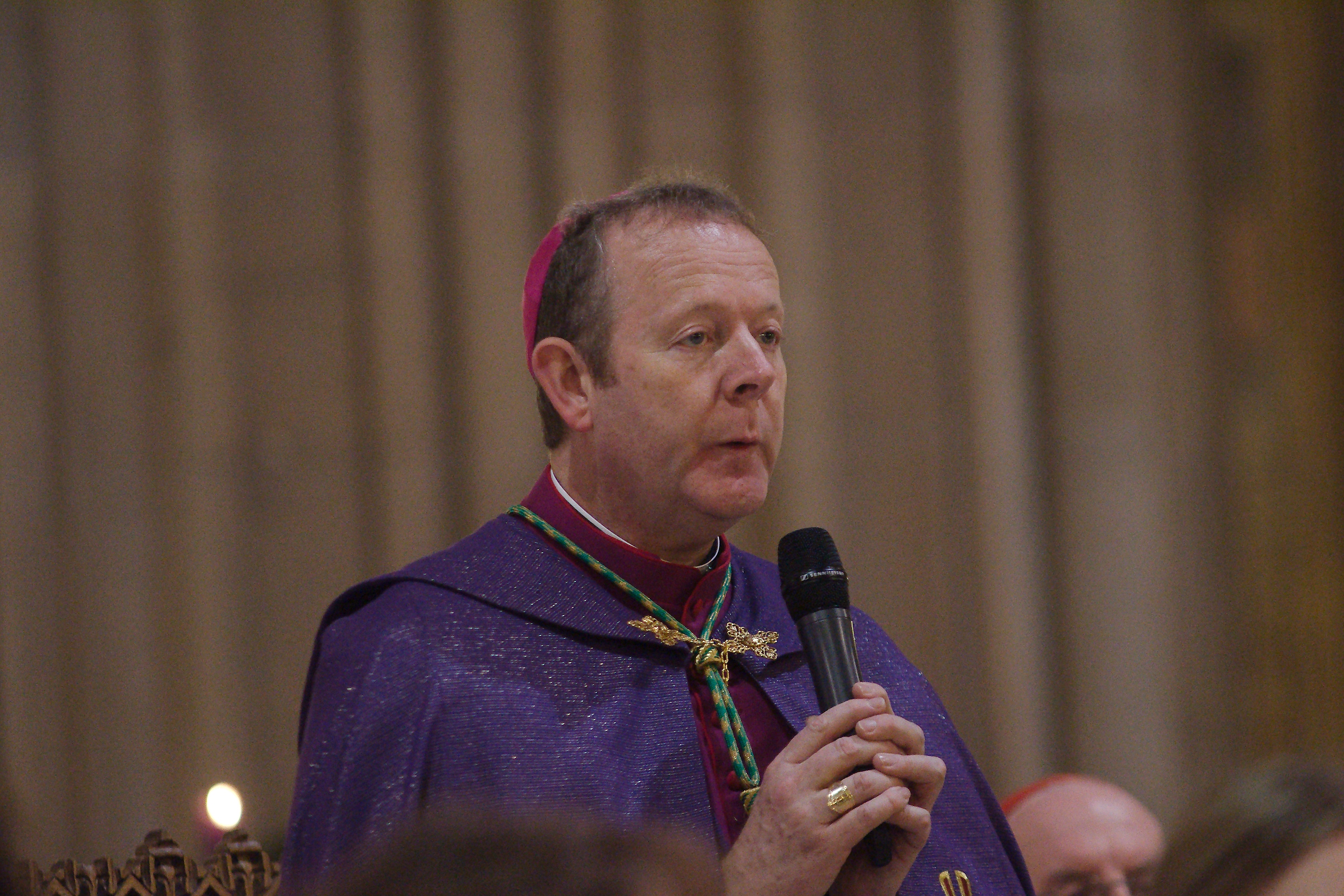

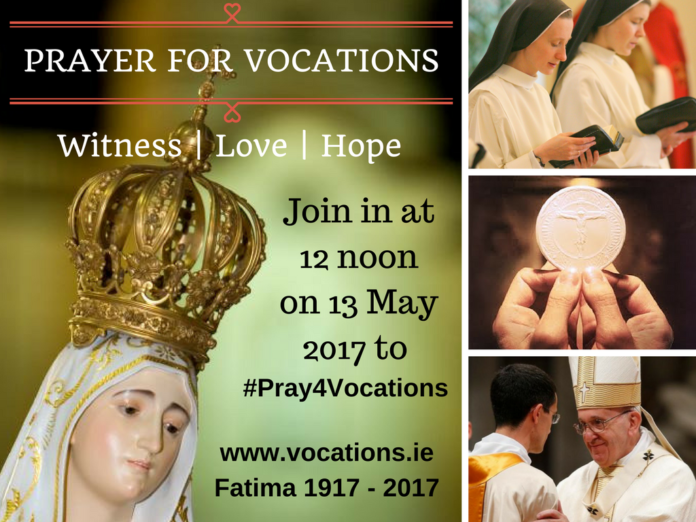
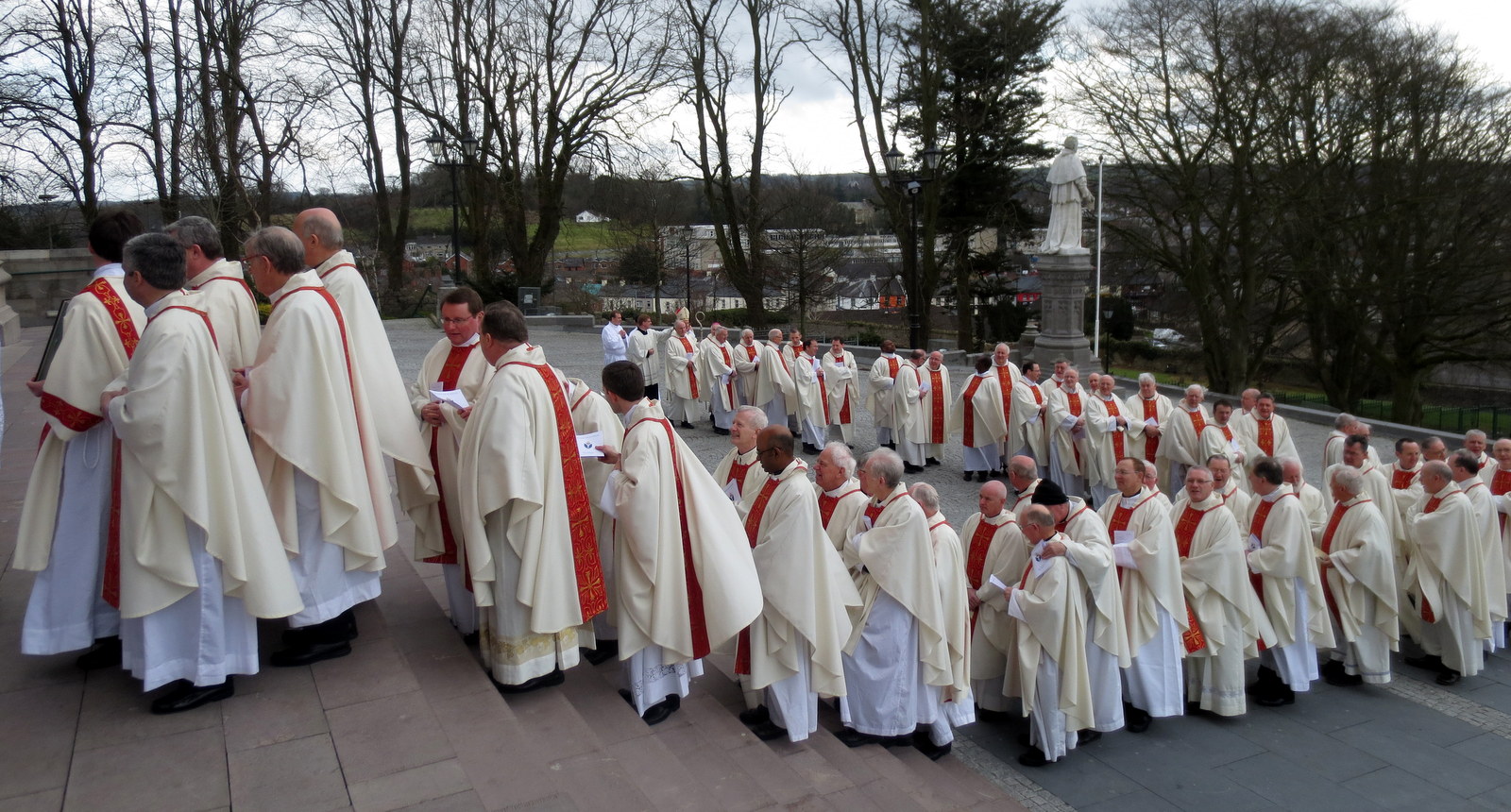

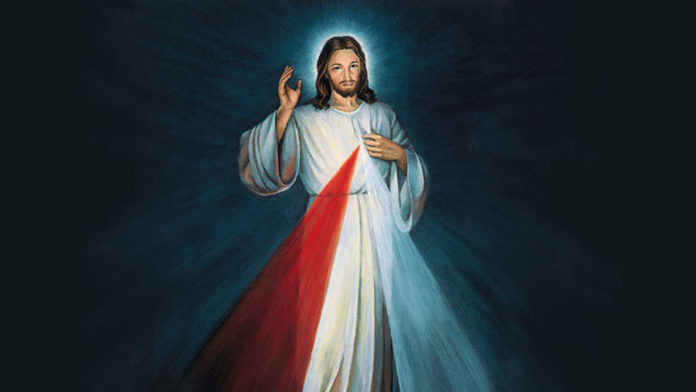
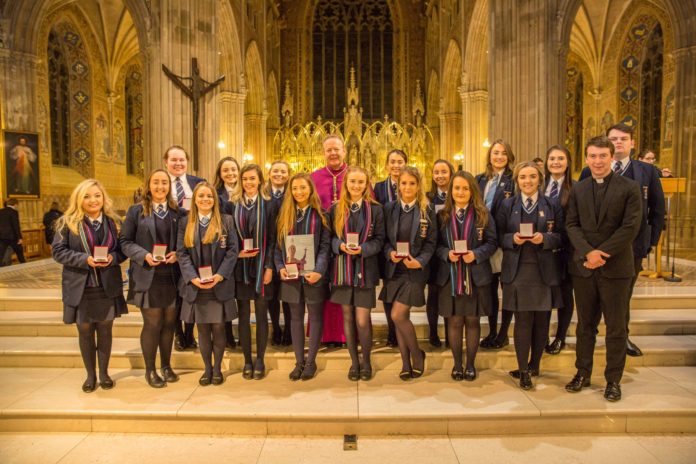
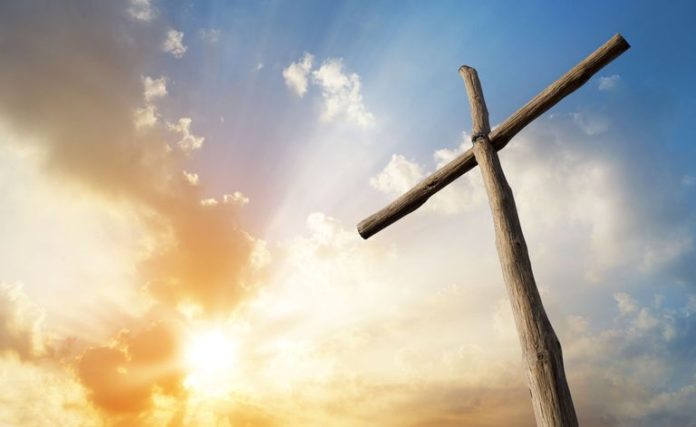
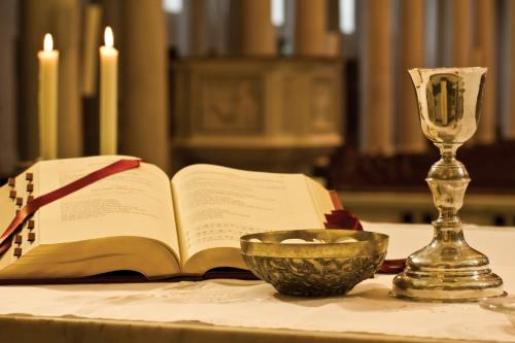
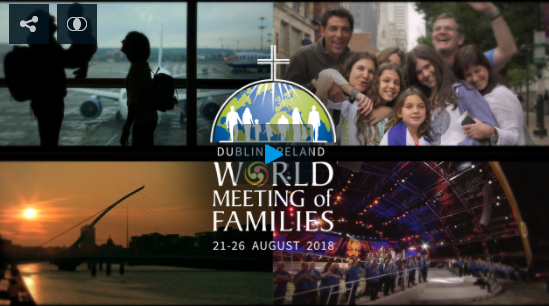
 Families and others from all over the world will gather in Dublin from 21-26 August 2018 to celebrate their lives together, to share their experiences from different parts of the world, to reflect on the different challenges they face and to grow together in faith.
Families and others from all over the world will gather in Dublin from 21-26 August 2018 to celebrate their lives together, to share their experiences from different parts of the world, to reflect on the different challenges they face and to grow together in faith.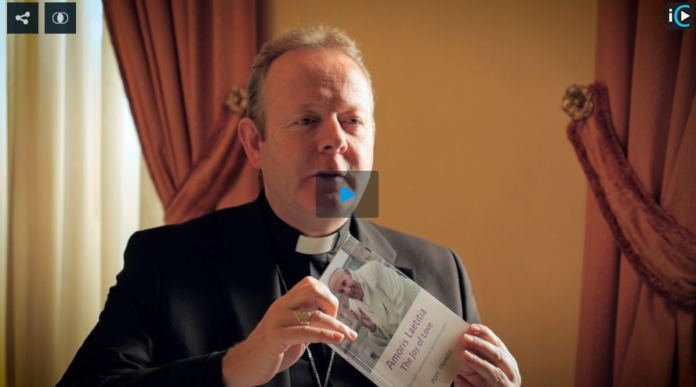
You must be logged in to post a comment.